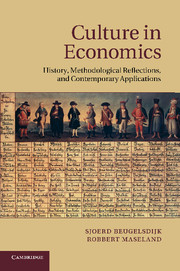9 - Comparative corporate governance
Published online by Cambridge University Press: 04 February 2011
Summary
Introduction
Two related developments explain the interest of corporate governance scholars in the role of culture. First, practitioners in the field of corporate governance have discovered the relevance of cultural differences, which has subsequently led to a revised perspective of pension funds, international securities agencies, the OECD, the World Bank and the IMF on corporate governance, one in which national cultural differences play an important role (Licht 2001). Second, and parallel to this inductive – practice-oriented – route toward the recognition of culture, a more deductive, theory-driven route has pushed the interest in culture as well. Economic growth theorists have pointed toward the importance of a well-functioning corporate governance system, which raised the subsequent question as to why quality differences in corporate governance regimes exist. This triggered an intense debate on the origin of such differences. Recent research suggests that historical differences in legal origin and culture help explain such differences.
In comparing corporate governance regimes scholars have turned toward legal origin of societies (countries) and developed a range of measures to proxy for a nation's legal origin. Like the Hofstede dimensions in the field of international business (as discussed in the previous chapter), these measures of legal origin have become a cornerstone of empirical studies in financial economics and comparative corporate governance. When discussing legal origin, scholars frequently refer to the role of culture and a society's cultural background. The causal chain of logic often includes explicit references to a role of culture.
- Type
- Chapter
- Information
- Culture in EconomicsHistory, Methodological Reflections and Contemporary Applications, pp. 254 - 286Publisher: Cambridge University PressPrint publication year: 2010



